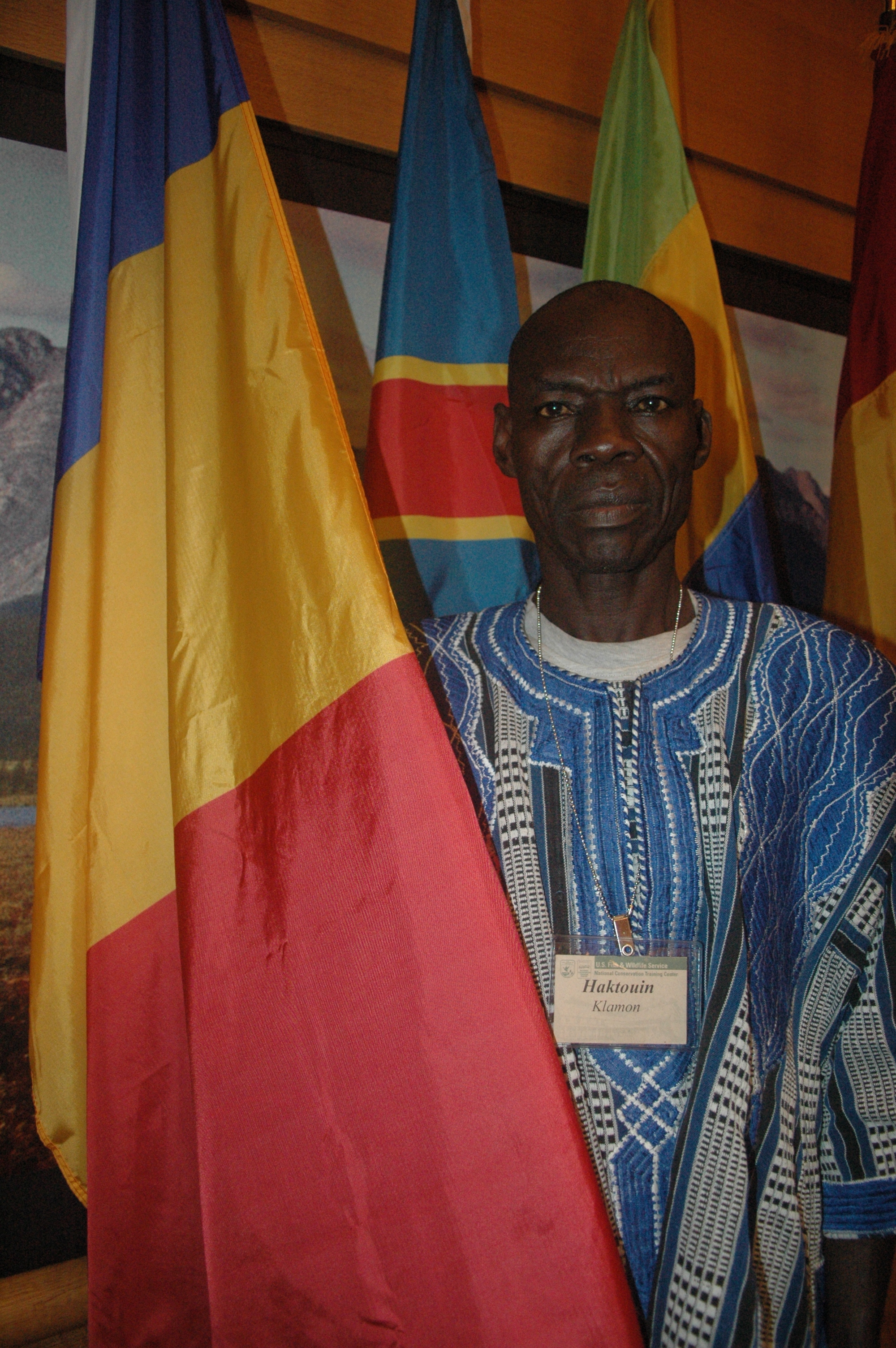National Conservation Training Center, Shepherdstown, West Virginia--- Protecting wildlife sometimes has tragic consequences, including the loss of human life.
Klamon Haktouin, from the African country of Chad, still remembers the day that six eco guards at Zakouma Park were assassinated in 2013 by an elephant poacher.
“This was a shock to me because they were some of my best guards and best shots,” Haktouin said. “They all had families.”
Haktouin, a forestry engineer, specialist in wildlife and national administrator of the Network of Central African Protected Areas, has been actively helping to investigate and eliminate the illegal killing of elephants in Chad. Each time that an elephant is killed he goes out and establishes the GPS position so that it can be investigated.
But the loss of human life is much worse, and by 2013 they had lost a total of 28 eco guards including the loss of six that year. The six guards, (Idriss Adoum, Daoud Adjouma, Zakaria Ibrahim, Djibrine Adoum Goudja, Brahim Khamis, and Hassan Djibrine), were being assisted by the African Network to control poaching and were assigned to patrol a distant landing field and roads far out in the park. Authorities feel that illegal ivory from poached elephants then moves out of the country to Sudan.
The President of Chad was very concerned and asked for stepped-up enforcement.
As a result, the six eco guards and one cook were assigned to cover the airfield in March, 2013. On a September, 2013 morning they went into a mosque to pray, without taking their firearms. A person snuck into the mosque and killed all six of the guards in the mosque and wounded the cook.
As the shooter ran off he dropped some documents and a SIM card from his phone. The evidence was sent to Interpol and later they located where the assassin was and he was captured, only to escape from jail and is still at large.
Haktouin said that the shooter admitted to shooting the elephants and the game protectors.
The president of Chad was so upset after the killing that he ordered all of the ivory stock burned. He said that the ivory was not worth the lives of these eco guards, and the president provided his helicopter to be used to search for the killer.
Haktouin, who has worked 26 years for protected areas, says that as far back as the 1960s Chad had a rich and varied mixture of wildlife. The elephant population was estimated to be between 90,000 and 100,000.
However in the late 1900s Chad paid a heavy price in wildlife losses, as the animals were poached and slaughtered and today the entire population is estimated to be only about 4,000. The 610,000-acre Zakouma Park had 4,800 elephants in 2005, but today following organized poaching the park only has only 480.
Species such as the rhinoceros, oryx, and addax are extinct in Chad.
“Poachers are supported by people with money and influence,” Haktouin said. The poaching continues. In April, 2013 as many as 90 elephants were killed.
Haktouin told about the killings at the International Conservation Chief’s Academy (ICCA) where 42 African conservation officials are meeting with their American counterparts to build relationships and a network to help them fight illegal wildlife trafficking decimating wildlife.


